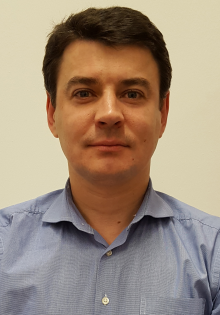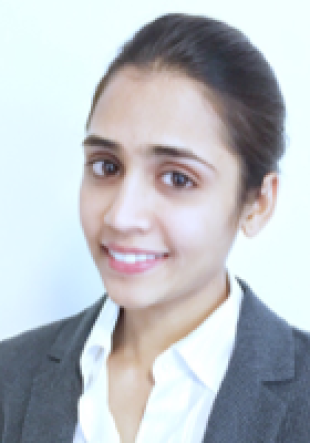Modeling and Simulation (L.048.90102), winter semester 2017/2018
Usually taken as compulsory course by students of the Electrical System Engineering Master (ESE) program at the University of Paderborn in their first or second semester. The language of instruction is English.
Topics
These topics are covered:
- Introduction to the modeling process (motivation, definitions, standard workflow)
- Number representation in digital computers (integer and floating point numbers and operations on them, precision of numbers)
- Numerical schemes for ordinary differential equations (Schemes for initial value and boundary condition problems, stability)
- Numerical schemes for partial differential equations (finite difference schemes, Fourier approaches, boundary element method, finite element method)
- Simulations of discrete event-driven processes (graphs, shortest path problem, travelling salesman problem, task scheduling)
As prerequisites we expect Bachelor level knowledge in mathematics (differential equations, Fourier transformations) and basic programming abilities. Some numerical algorithms will be implemented in MATLAB programming language, which will be introduced at the beginning of the class in the lecture and exercise, however this will be no introduction into programming in general.
Lecture
Tuesdays 9:15-10:45, room P 6 2.03
Lecturer: Dr. Viktor Myroshnychenko
A Tablet-PC will be used to do the lecture. The handwritten lecture notes and presentation slides are uploaded to koaLA as PDF.
Problem Sheets (Homeworks)
Published weekly in koaLA. Solutions should be submitted for correction after one week via the koaLA. The problems sheets are then discussed in the exercise.
Some problems require implementations in the MATLAB programming language. You can either use the MATLAB available in the computer pools of the Electrical Engineering department (see below) or install MATLAB (commercial) or a free alternative like Octave (recommendation for Linux and OS X) or FreeMat (recommendation for Windows).
Exercise groups (Tutorials)
Dates (starting first week of semester):
Tuesdays 11:00-12:45, computer pool room P7.2.02.1 (starting first week of semester).
Tutor: Dr. Viktor Myroshnychenko, Ms. Henna Farheen
The exercises are located in the computer room P7.2.02.1. You can either use one of the 20 PCs (account required, see below) or bring your own Notebook (then a MATLAB compatible software is required, see above).
Computer pool rooms
The Electrical Engineering department operates two computer pools in room P7.2.02.1 and room P1.6.12.4, see detailed information in German. Room P7.2.02.1 will be used for the exercise groups. With an access card available from the IRB (room E0.129) you can enter the rooms anytime unless they are reserved for teaching.
To use the computers in the pool rooms with your IMT account, you have to request access in the IMT User Administration interface. There click on "english" (in the upper right corner), then "User Self-Administration", enter your IMT name/password, click on the "Decentralized Services" button, scroll down to section "Fakultät 5 (EIM)" line "Rechnerzugang im Institut für Informatik" and click on the "details / change" button there. Click the button "Beantragen", then click "back" (NOT "stornieren"=cancel). If you are a regular ESE student it should be automatically activated; if not, please go to the IRB (room E0.129) to activate it.
The computers run on Linux (see web for introductions if you are not familiar) and have Matlab installed (classroom license with small limitations). Initially the Linux user interface might be in German - then this how-to to change the language by Jonas Hünig might help.
Exam
By solving and submitting of the exercises additional bonus points (5%) can be obtained for the written exam (to be precise: bonuspoints_exam=5%*max_points_exam/100%*reached_points_problemsheets/max_points_problemsheets).
The next written exam is scheduled for Monday, February 12, 2018 starting 09:00 - 11:30, room P1.2.22. It will be on paper (i.e. no computer required, programming tasks will be done via gap texts or few lines). Except for pens and a simple ruler no other tools are allowed (e.g. no calculators, no mobile phones). To take the exam, you have to sign up in PAUL on time.
Communication
For office hours and contact data please have a look at the website of the TET group.
Current information and circular mails are published via koaLA. There a forum and Wiki area will be created for communication also between students and additional material like lecture notes and problem sheets are uploaded. Everyone signed up in PAUL and having a koaLA account should be in the koaLA group already. To be added to the group, please send us your IMT login name.
We are always thankful for suggestions regarding the course.
Literature
There is no book that closely follows the lecture. If you already own a book on numerics, especially numerical physics/engineering, this is a good start.
Also, we can recommend the book "Modeling and Simulation" by Bungartz/Zimmer/Buchholz/Pflüger for further reading as it covers many topics of the lecture in more depth. On the campus network the German version can be downloaded for free (via an agreement of the University library with the publisher Springer).
Additional literature will be mentioned in the lecture and exercises.


